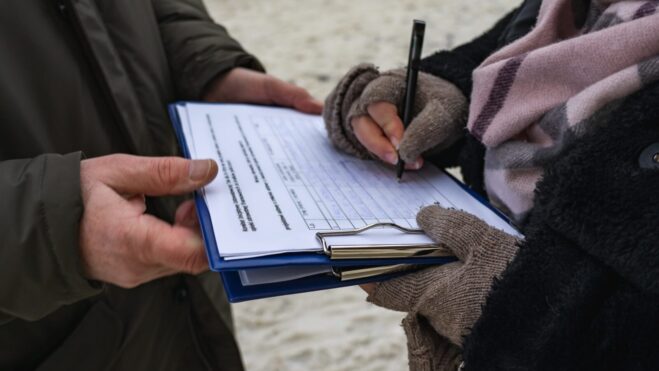Iowa College Athletes File Civil Lawsuit Against State And DCI Investigators Over Gambling Sting
The collegiate athletes are seeking redress for what they allege are violations of their rights and reputational damage.
2 min

A collective of Iowa college athletes has initiated a civil lawsuit seeking damages from the state and the Iowa Division of Criminal Investigation (DCI) investigators, the Associated Press reports. This action stems from a gambling sting operation that has raised questions about constitutional rights and due process.
The lawsuit, which has garnered considerable attention and brought into question geolocation company GeoComply’s involvement, was filed Friday by 25 athletes affiliated with prominent Iowa universities. These individuals are now turning to the legal system to seek redress for what they allege are violations of their rights as well as reputational damage.
At the heart of the lawsuit is the assertion that the athletes’ Fourth and Fourteenth Amendment rights were infringed upon during the investigation. The Fourth Amendment protects citizens from unreasonable searches and seizures, while the Fourteenth Amendment guarantees due process under the law.
Several of the athletes pleaded guilty to underage gambling and paid a fine soon after the case broke. A few others, however, challenged the state and won after a judge confirmed that the DCI had used tracking software illegally.
With that judge’s ruling, and while arguing that the DCI infringed upon their rights to privacy, the athletes are building their case. They’re seeking not only compensatory damages for the harm they have suffered but also punitive damages.
This suggests a desire to hold the state accountable and to deter similar actions in the future. The call for a jury trial indicates a desire to have the case receive maximum exposure.
Culpa Kibana
The tracking software in question, produced by Vancouver-based GeoComply, is at the center of the controversy. DCI investigators employed a GeoComply software tool called Kibana to monitor if individuals accessed betting applications on campus properties.
The athletes’ legal team argues that the DCI’s use of the tracking software constituted a warrantless search, thus violating constitutional protections. The athletes, who were part of various sports teams at Iowa and Iowa State universities, were allegedly singled out even though the DCI had no cause to investigate them.
Through Kibana, the DCI uncovered the account details associated with DraftKings and FanDuel users. Then, armed with this data, the DCI acquired warrants compelling the sportsbooks to disclose the identities of the account holders and their respective betting histories.
However, the athletes’ lawyers argue that no one had the authority to use Kibana in the first place. Doing so, according to the lawsuit, requires a warrant. During questioning, DCI Special Agent Brian Sanger admitted that he initiated the investigation due to worries about possible match fixing. However, he clarified at the same time that he lacked any concrete information indicating such misconduct.
Bigger picture
The implications of this case extend beyond the plaintiffs and defendants directly involved. It raises questions about the boundaries of state surveillance and the rights of citizens in the digital age. The use of tracking software by law enforcement agencies is a contentious issue, with privacy advocates cautioning against potential overreach and the erosion of civil liberties.
The plaintiffs have asserted that they have experienced not only legal entanglements but also public humiliation and emotional distress. Some have seen their athletic careers derailed, a point emphasized by their attorneys who argue that the athletes’ futures have been unjustly altered by the state’s actions.
The state’s response to the lawsuit has been to defer comment, directing inquiries to the Attorney General’s Office, which has yet to issue a statement. This silence speaks volumes about the gravity of the situation and the careful consideration that is likely being given to the state’s legal strategy.





